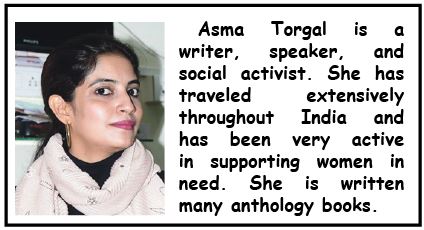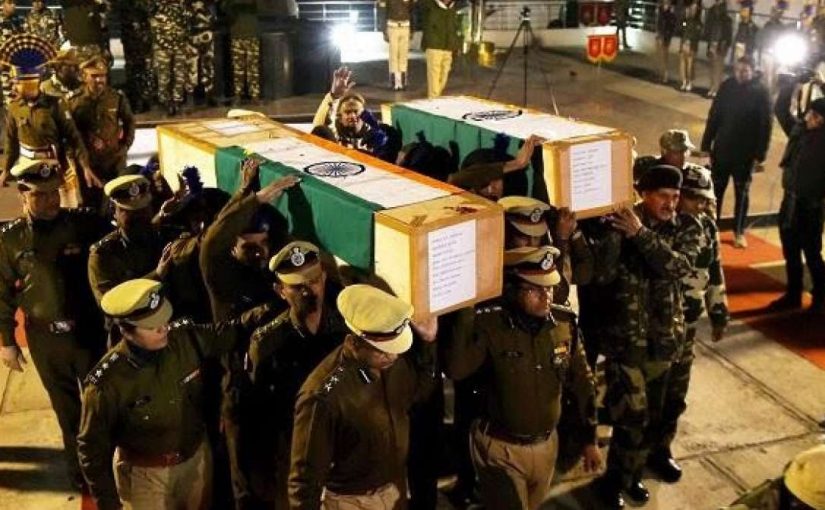By Asma Torgal
“DON’T fall in love.” This line was not said by any heartbroken lover but by a 20-year-old Kashmiri youth, who recorded it in his final video message before his death and the killings of 40 Indian jawans.
“Don’t fall in love.” This line is not said by any heartbroken guy but by a 20-year-old Kashmiri youth who said it in his last video.
What is it?
Around 3:15 pm on February 14, 2019 it was a routine day for security personnel and the Central Reserve Police Force (CRPF) jawans, who were travelling in Pulwama on NH 44 on the heavily guarded Srinagar-Jammu highway
A convoy of CRPF jawans was hit by an explosive-laden SUV, resulting in the deaths of 40 CRPF jawans, and leaving many others injured.
On February 14, 2019 there was nothing romantic about Kashmir that day. It was a devastating attack — the worst carried out against Indian forces in decades.
The nation was shocked by the news, which featured stories of soldiers and their broken families on TV and in newspapers. Before the attack, some had called a family member, some had just returned from a visit, and some were even talking to them on the phone when the explosives detonated.
Who did it?
The suicide bomber was identified as Adil Ahmad Dar hours later, when the Pakistan-based militant group, Jaish-e-Mohammad, released a video online saying it had carried out the attack.
A clean-shaven young boy with some ammunition placed before him, holding guns, was talking in a video with a message.
“By the time this video reaches you, I will be enjoying heaven. This is my last message to the people of Kashmir. Jaish has kept the flame alive and stayed put in adverse circumstances. Come, join the group, and prepare for one last fight,” he says in the video, not seeming to regret his actions.
Red is the color of their memory
An eyewitness told investigators that Adil Dar “deviated left and right for at least two minutes” while the escorts in bus 3 constantly told him to get away from the convoy. CRPF jawans travelling in the other buses have told investigators that the red Eeco car started tailing the convoy from Jammu.
A CRPF official stated that Adil’s attempts to hit the convoy started with the last bus, and he succeeded with bus number 3, which also killed the ASI who was part of the road opening party.
The call for action
In the aftermath of the attack, there were demands for retribution and action against those responsible. The Indian government responded by launching airstrikes on terror camps in Pakistan, sparking a tense standoff between the two nations.
Since then, there have been several developments in the investigation and prosecution of those involved in the attack. In 2020, the National Investigation Agency (NIA) filed a charge sheet against six accused, including the mastermind behind the attack, Masood Azhar. The trial is ongoing, and the families of the victims continue to wait for justice.
The Pulwama attack also had significant political and social ramifications. The government’s response, including the airstrikes, was seen as a demonstration of its resolve to take on terrorism. However, there were also concerns about the potential for escalation and the impact on Indo-Pak relations.
The neighbouring countries
India has strengthened its military and political power since then, while Pakistan still struggles internally. India’s government and political system have demonstrated strength through military actions, such as the punitive strike after Pulwama and the standoff with China in Galwan.
Memory remains vivid
Five years on, the Pulwama attack remains a painful reminder of the threat of terrorism and the need for sustained action against it. The attack serves as a reminder of the sacrifices made by our security forces in protecting the nation and the need for continued support and solidarity for their efforts. When we look back at the Pulwama attack, the memories of the grieving families of the slain CRPF men still linger, their cries of sorrow and anguish still echoing in our minds.
Valentine’s Day– Kashmir was drenched in red. It was not about roses; it was all about blood in the valley. Someone had lost a son. Someone had lost his love and someone had lost his brother. In fact, “everyone in the war loses everything.”

